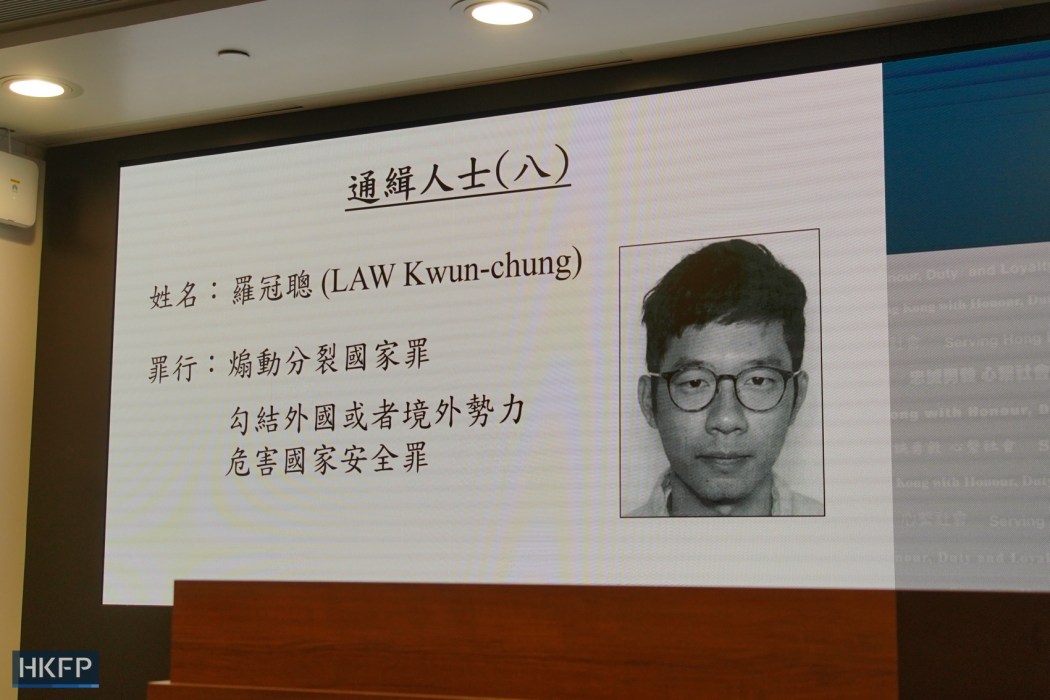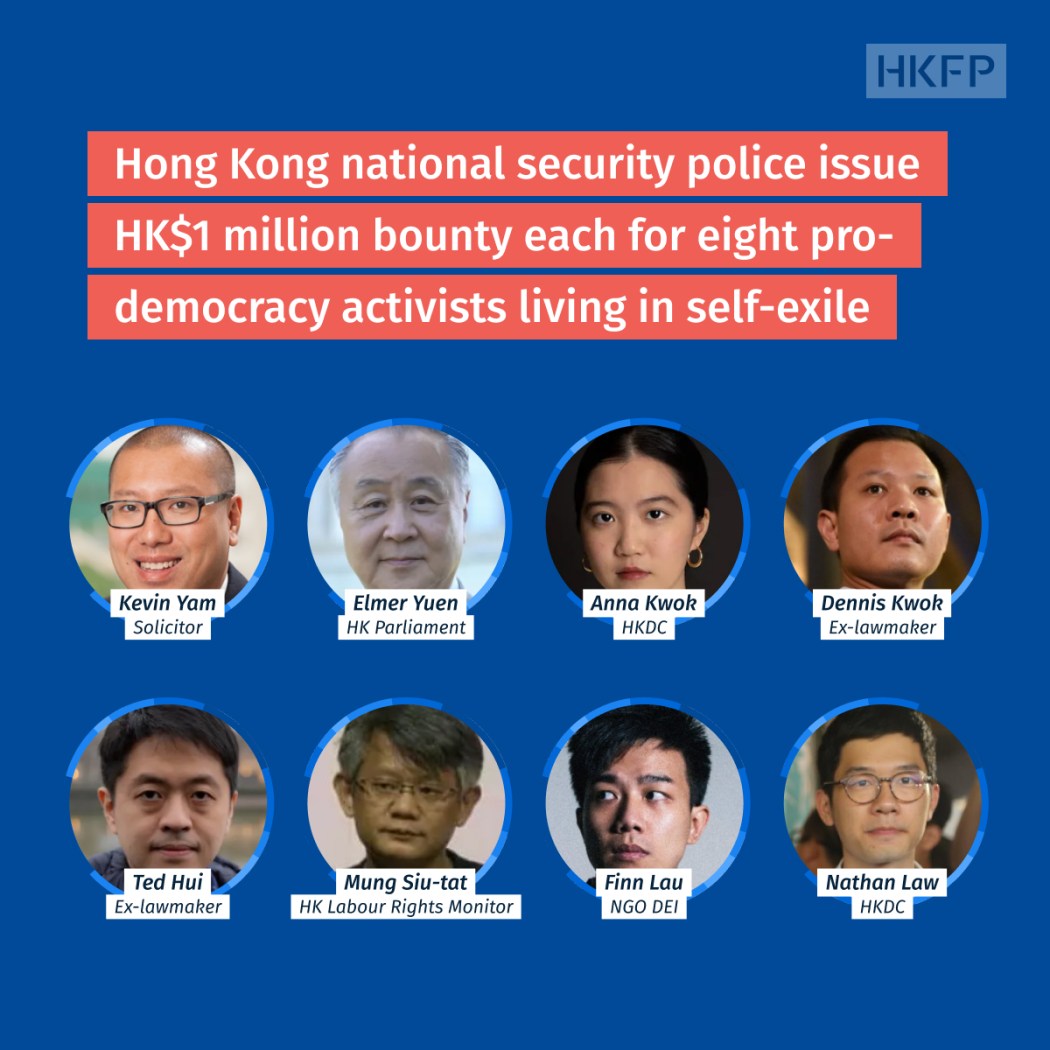Hong Kong national security police have taken away the sister-in-law of wanted activist Nathan Law for questioning, according to local media outlets citing sources. It is the latest move involving family members of the eight overseas pro-democracy figures, who are facing arrest warrants and HK$1 million bounties.

The ex-lawmaker’s sister-in-law was taken away from an apartment in Tung Chung on Saturday afternoon to assist in investigations, according to Sing Tao and Ming Pao. Law’s mother and elder brother both live at the same Tung Chung address.
In response to HKFP, the police said its National Security Department “took away a woman for investigation in Lantau North today (August 19). She is suspected of assisting persons wanted by Police to continue to commit acts and engage in activities that endanger national security.”
The statement in English added that an investigation is underway and further operations, including arrest, may be made.
Saturday’s detainment came less than 24 hours after another woman – named Yu Chi-yan – was taken away from her apartment in North Point on Friday afternoon. She was familiar with members of now-defunct pro-democracy party Demosisto, of which Law was a founding member, local outlets including Ming Pao and Sing Tao reported.
In its response to HKFP, the force also said it had taken away a woman on Friday “suspected of assisting persons wanted by Police to continue to commit acts and engage in activities that endanger national security.”
“Investigation is underway and further operations, including arrest, may be made. In conducting any operation, Police will act on the basis of actual circumstances and according to the law,” the statement read.
Wanted self-exiled democrats
Law is among the eight self-exiled activists wanted by the Hong Kong national security police, with authorities offering a bounty of HK$1 million for each of the democrats.
He announced that he had left Hong Kong after Beijing imposed the national security law in June 2020. He is now based in the UK.

National security police last month took away Law’s parents and brother for questioning from an apartment in Tung Chung, local media reported.
They were questioned about whether they had provided financial support for Law and if they were his “agents” in Hong Kong. They were released from the police station afterwards.
News of Hong Kong authorities’ arrest warrants for eight overseas democrats made international headlines after national security police announced the move last month. Police said they were offering HK$1 million bounties for each of the wanted people, and encouraged them to come forward.

Besides Law, the wanted democrats include ex-lawmakers Ted Hui and Dennis Kwok; activists Anna Kwok, Elmer Yuen, Mung Siu-tat and Finn Lau; and solicitor Kevin Yam. All of them are now based abroad, including in the US, UK and Australia.
Family members and acquaintances of Anna Kwok, Dennis Kwok, Mung, and Yuen have been taken in for questioning since the warrants were issued.
Police said that the group had “seriously violated the national security offences” by ”calling for sanctions against local officials“ and “scheming for foreign countries to undermine Hong Kong’s status as a financial centre.”
While Western countries have denounced the arrest warrants, pro-establishment groups have thrown their support behind the police move and said the activists should be held accountable to the law.
In June 2020, Beijing inserted national security legislation directly into Hong Kong’s mini-constitution – bypassing the local legislature – following a year of pro-democracy protests and unrest. It criminalised subversion, secession, collusion with foreign forces and terrorist acts, which were broadly defined to include disruption to transport and other infrastructure.
The move gave police sweeping new powers, alarming democrats, civil society groups and trade partners, as such laws have been used broadly to silence and punish dissidents in China. However, the authorities say it has restored stability and peace to the city.
Support HKFP | Policies & Ethics | Error/typo? | Contact Us | Newsletter | Transparency & Annual Report | Apps
Help safeguard press freedom & keep HKFP free for all readers by supporting our team


























